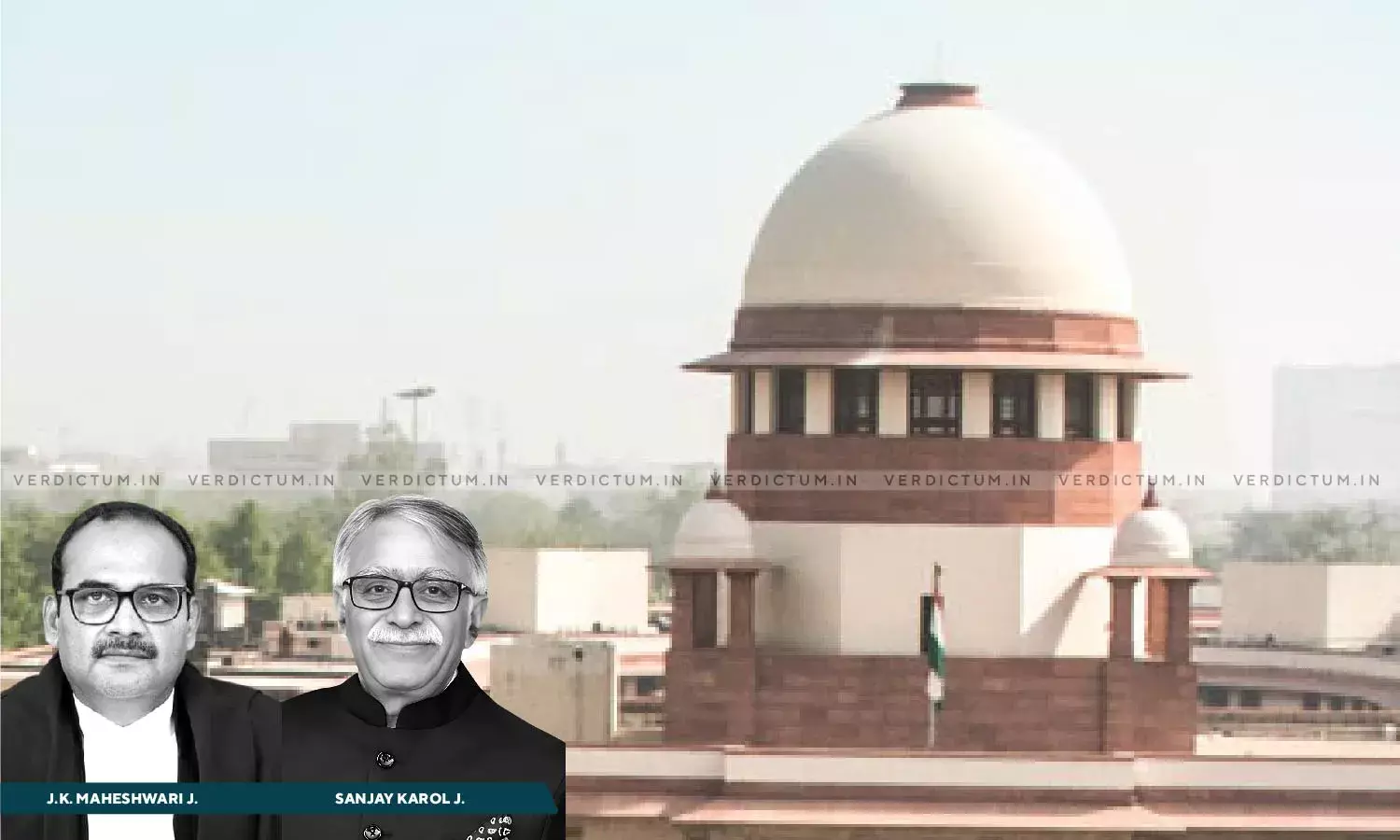HC Cannot Overturn Finding Of Fact By First Appellate Court Without Framing Substantial Question Of Law: Supreme Court
The Supreme Court observed that a High Court, in second appeal, cannot overturn the finding of fact of the First Appellate Court without framing a substantial question of law.
The Court reiterated the High Court’s duty to frame substantial questions of law before hearing an appeal under Section 100 of the Code Of Civil Procedure.
The Court set aside the order of the Calcutta High Court which overturned the decision of the First Appellate Court qua sub-letting without framing a substantial question of law regarding sub-letting at any stage. The Court referred to its judgment on Section 100 of the CPC in Narayanan Rajendran v. Lekshmy Sarojini (2009) wherein it was held that “it is the bounden duty and obligation of the High Court to formulate substantial questions of law and then only the High Court is permitted to proceed with the case to decide those questions of law.”
A Bench of Justice J.K. Maheshwari and Justice Sanjay Karol observed, “There is no question framed about lack of evidence, sub-letting or incorrect appreciation of facts by the learned First Appellate Court, on which the final finding of the High Court is returned. Furthermore, there is no discussion by the High Court, as to the reasons required for the departure from the substantial questions of law framed at the stage of admission or in the impugned order. The impugned judgment overturns the finding of fact of the First Appellate Court qua sub-letting without framing a substantial question of law in this regard at any stage.”
Senior Advocate Vinay Navare represented the appellants, while Senior Advocate SB Upadhyay appeared for the respondent.
The appellants filed a suit for eviction submitting that the respondents had illegally inducted a sub-tenant into the subject premises, which was first dismissed by the Trial Court.
The First Appellate Court set aside the findings of the Trial Court and decreed the suit in favour of the appellants. The Court held that there were contradictions in the reasoning of the Trial Court, where it had on the one hand observed that a valid legal notice was served upon the defendant and on the other, held the relationship of landlord and tenant is not proved.
The High Court in the Second Appeal under Section 100 of the CPC held that the decision of the First Appellate Court was erroneous.
The Supreme Court held that the High Court fell in error in overturning the findings of the First Appellate Court.
The Court referred to its decision in Hardeep Kaur v. Malkiat Kaur (2012) which affirmed that “it is the duty of the High Court to frame substantial questions of law before hearing an appeal under Section 100 of the CPC and such a second appeal has to be heard and decided on such substantial question of law.”
The Bench noted that the questions of law framed by the High Court for admission of the appeal, pertained to necessary parties, non-joinder of such parties, and the effect it had on the suit filed by the appellants.
However, The Court pointed out that there was another substantial question of law framed as to whether an interlocutory order of the learned First Appellate Court can be held to have attained finality to bring the issue within the mischief of Section 11 of the CPC.
“The finding returned is in the affirmative and this interlocutory order whereby the cross-objection of the respondent-defendants was dismissed due to delay has been held to be amenable to appeal. Thereafter, the High Court has proceeded to discuss the issue of sub-letting of the suit premises and the decree of the learned First Appellate Court was set aside on that ground.” the Court remarked.
Consequently, the Court held, “In view of the above exposition of law and the foregoing discussion, the impugned order is liable to be set aside on this ground.”
Accordingly, the Supreme Court allowed the appeal.
Cause Title: Rashmi Kant Vijay Chandra & Ors. v. Baijnath Choubey & Company (Neutral Citation: 2024 INSC 688)
Appearance:
Appellants: Senior Advocate Vinay Navare; AOR Sarad Kumar Singhania; Advocate Rashmi Singhania
Respondent: Senior Advocate SB Upadhyay; AOR Anisha Upadhyay; Advocate Abhishek Goel












